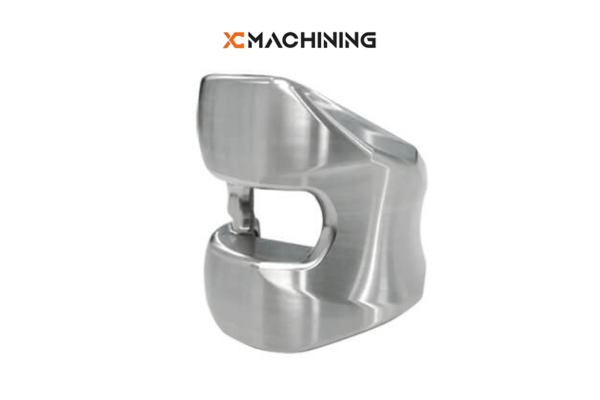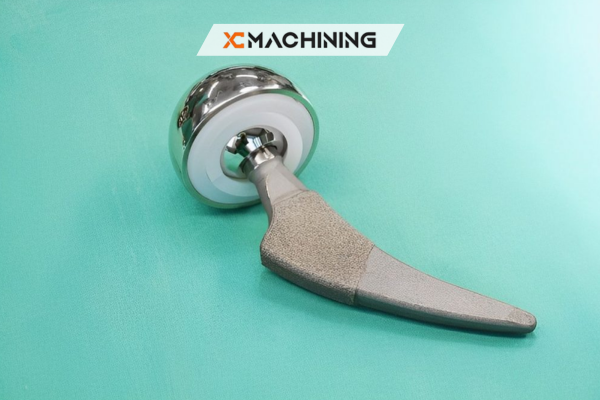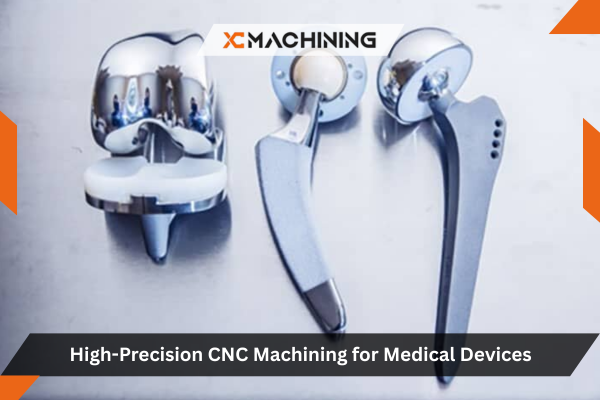The success of patients and health concerns depends on how precise, reliable, and safe production in healthcare is. That’s why CNC machining for medical devices is essential for growing medical innovation and achieving excellence in manufacturing. Computer Numerical Control machining services focus on making high-quality custom machined medical parts that fulfill even the toughest international quality and regulatory requirements for these medical tools.
Both the accuracy and the rules are considered to be the reasons why medical device manufacturers, hospitals, and healthcare innovators choose to work with them by utilizing these services.
Table of Contents
What does CNC Medical Manufacturing Services mean?
CNC machining for medical devices manufacturing is the process of fulfilling the specific needs of medical professionals, original equipment manufacturers, and institutions in healthcare. We know that the components, such as surgical instruments and prosthetic parts, have significant importance. Advanced multi-axis CNC equipment is used by our team to achieve accurate manufacturing of each product.
Using the CNC Machining for Medical services helps achieve valuable benefits.
- All products consistently meet the standards set by ISO 13485 certified processes.
- Fine tolerances are required for the complex structures used in aerospace engineering.
- Speedy results that preserve the work’s accuracy
- Biocompatible materials such as Titanium, Stainless Steel, and PEEK are used.
Both systems for diagnosis and implantable parts benefit from our emphasis on meeting requirements and offering reliable solutions. The major services of medical manufacturing include:
Custom-CNC Machining for Medical Parts for Unique Needs
CNC machining for medical device equipment requires materials that are hard to make in large numbers. That’s why making the custom machined parts for the medical industry helps in personalized parts for clients by following their unique details, drawings and special materials for CNC medical
Details of the following process include:
- From prototypes to the commercial release of products
- Demand for using complex systems and tiny parts
- Cutting down production time for lots of jobs
- The use of teams in engineering.
This is why businesses in R&D, startups, and larger organizations are looking for groundbreaking solutions.

Why Medical Machining Expertise Matters?
Need for CNC Machining for Medical Devices
Accuracy alone isn’t enough in medical machining; it’s essential for saving lives, too. Manufacturing mistakes can cause components to fail, which may cause risks in surgery or in making test results. Our superior CNC machining for medical devices allows us to make parts to very precise and regular levels.
A wide range of machined parts, such as:
- Surgical instruments
- Orthopedic implants
- Dental devices
- Equipment casings for inspections
- Bone screws and pins are used for putting bones in the right alignment.
When you opt for this, you get guaranteed access to compliant, high-quality parts, all delivered exactly as required.
Leading CNC Machined Parts for the Healthcare Industry
Trusted by hospitals, clinics, and medical labs, the supply of medical-grade, precise parts for different projects is seen as a facility with the best tools and a group of skilled engineers.
- Manufacturing support within the region can shorten the time it takes to get your products.
- There are on-site meetings and a review of bicycle parts.
- Upkeep with DHA, MoH, and worldwide medical practices
- Local healthcare startup services with speedy prototyping
Full-time assistance for businesses to ensure their supply chains can handle challenges, achieve quicker time to market, and meet tough quality standards is essential.
Materials and Capabilities of CNC Machines
CNC machining for medical items uses many different materials.
- Materials from the Titanium family are chosen for creating dental implants and other strong parts.
- The nature of Stainless Steel (316L) allows for resilient surgical instruments.
- PEEK is frequently used because it is compatible with biology and designed for orthopedic and spinal device use.
- People use aluminum and brass in housing and structural components of equipment.
Units able to perform advanced actions are:
- The terms 3, 4, and 5-axis machining are used in the industry.
- Lathes suitable for engineering micro-components
- Processes known as deburring, polishing, and anodizing come at this phase.
- All products go through strict testing, and the process is well documented
Top Healthcare Industry that Has CNC Excellence
Collaborate with healthcare providers to find solutions to real issues using quality-engineered products. CNC-machined products in medical tech, like surgical robots and health wearables, are being tested.
Among the healthcare organizations that should be managed:
- Innovations in the medical device industry
- Public as well as private hospitals
- Doctors in orthopedics and dentistry
- Research institutions
Thanks to CNC facilities, this can achieve innovation, security, and compliance all in one space.

Why Choose Medical CNC Machining Services?
- Precision without Fail: Each part is created to the closest possible tolerances
- Use ISO-certified methods of work and sterile work areas.
- Expertise: Medical parts are shaped by decades of expertise in engineering.
- Rapid Service: Logistics performed to the expected standard and swift delivery across the globe.
- Design integration: Client-focused process with prototyping, consulting, and design participation.
For any medical device, whether it’s produced in small volumes or large quantities, CNC services are the reliable choice for all.
Avail of the Trusted CNC Medical Machining Services
For a single test design or full manufacturing, CNC machining is designed for your medical application. Concentrating on precision machining and customized medical parts to make sure your products perform safely and securely each time. These things are considered major achievements in the medical field. Undoubtedly, its future is bright.
Frequently Asked Questions (FAQs)
What materials are used in CNC medical machining?
Titanium, Stainless Steel, PEEK, and various high-performance plastics are used to guarantee. They are strong and safe for people.
Do you offer prototyping services?
Rapid prototyping is available to medical device developers and new companies, allowing them to test their ideas before making a large-scale product.
Are CNC-machined parts compliant with medical regulations?
Absolutely. Following ISO 13485 guidelines and the guidelines set by the health authorities is the core.
How to handle bulk orders for hospitals or clinics?
Fully-equipped handlers manage both low-volume prototyping and high-volume production runs with consistent quality.
Define support in designing custom parts?
Engineers collaborate closely with clients to optimize part designs for manufacturability and compliance.





